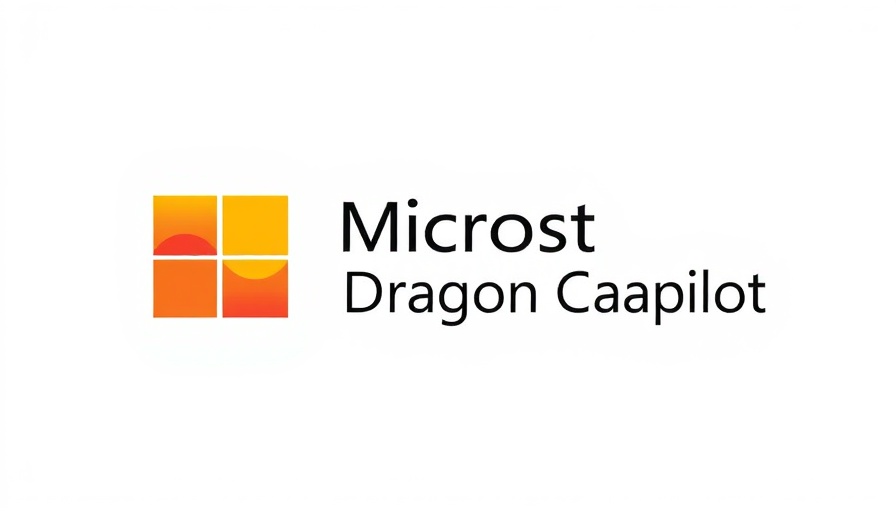
The Launch of Microsoft Dragon Copilot: A Game-Changer in Healthcare Efficiency
On March 3, 2025, Microsoft unveiled Dragon Copilot, a groundbreaking AI voice assistant tailored for the healthcare industry. This innovative tool combines the functionalities of Dragon Medical One (DMO) and DAX Copilot (DAX), providing clinicians with a unified experience that streamlines clinical documentation, surfaces crucial information, and automates a variety of tasks.
Understanding the Clinician's Needs: Addressing Burnout
As the healthcare system faces unprecedented challenges, clinician burnout has emerged as a significant concern. A report indicates that while burnout rates dropped from 53% in 2023 to 48% in 2024, the aging population and workforce shortages continue to pose threats. The introduction of technologies like Dragon Copilot aims to alleviate this burden significantly.
According to Joe Petro, corporate VP at Microsoft Health, AI can liberate clinicians from mundane administrative responsibilities, allowing them to focus more on patient care. With AI tools taking over repetitive tasks, healthcare providers may see a reduction in staff turnover rates and improved job satisfaction.
The Power of AI in Healthcare: Integrating Voice Assistants
AI voice assistants are already revolutionizing healthcare beyond documentation. By automating appointment confirmations and reminders, clinics can manage patient attendance more effectively. Reports show that healthcare systems lose about $150 billion annually in the U.S. due to missed appointments, emphasizing the need for efficient solutions.
Microsoft Dragon Copilot stands out by not only enhancing documentation but also improving patient engagement. AI capabilities help clinics reduce no-shows and streamline workflows, thereby improving the patient experience. Facilities utilizing advanced AI have noted significant reductions in appointment no-show rates and act swiftly to fill slots through automated systems.
Real-World Applications and Benefits of Dragon Copilot
Clinicians who adopt Dragon Copilot can take advantage of features like multilanguage support and automated documentation, which save time and reduce burnout. Reports indicate that those using the system save an average of five minutes per patient encounter, and 93% of patients who experienced the technology reported improved satisfaction with their overall care.
Moreover, the integration of voice AI in healthcare settings is profound. Services such as scheduling, reminders, and follow-ups can be managed seamlessly, allowing clinicians to dedicate more time to direct patient interaction rather than paperwork and administrative duties.
Looking to the Future: The Path Ahead for AI in Healthcare
As healthcare continues to evolve, the role of AI will likely expand. Future innovations may include deeper integrations of AI voice technologies with wearable health devices, pushing boundaries on real-time patient monitoring and personalized care.
Clinics are already experiencing the benefits of AI voice assistants today, with many reporting increased efficiency and financial returns. These advancements herald a shift towards a more patient-centered and efficient healthcare system. Platforms like Dragon Copilot are setting the stage for smarter, more responsive care that prioritizes both clinician and patient needs.
Conclusion: Embracing AI for a Healthier Tomorrow
The launch of Microsoft Dragon Copilot points to a transformative future for healthcare by uniting advanced AI capabilities with clinical workflows. As the sector grapples with rising demands and a growing workforce shortage, leveraging technology to alleviate administrative burdens could be key in ensuring improved patient outcomes and clinician well-being.
By embracing solutions like Dragon Copilot, healthcare organizations can proactively address challenges, enhance efficiency, and ultimately foster better care experiences for patients nationwide.
 Add Row
Add Row  Add
Add 




 Add Row
Add Row  Add
Add 

Write A Comment